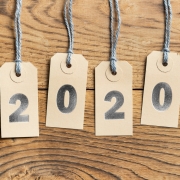A job done well is a job WELL DONE
As a President and Co-Founder Mike Bare said the business in our last interview, ”We’re only as good as our people”, meaning the contribution from the work our evaluators (perhaps such as your) means more than just a

simple shop fee. For our clients it can mean the difference between limping onward with an unproductive business environment and gaining the competative edge with comprehensive improvements made to their workfore, and therefore, their customers experience.
Last month I sat down for a quick chat with Ildikó, one of our team members who has had extensive experience with the people who use the work we provide: the client.
 What motivates the client to get in touch with us, and what do they bring initially?
What motivates the client to get in touch with us, and what do they bring initially?
In the case of one the clients I deal with, it was us who contacted them and not the other way around. Our sales team went to this company to offer them possibilities and our services, how we could help them to improve their performance. They were interested in checking their retailers, because they themselves do not have their own shops but work with high-street retailer companies. They wanted to check how the retailers offered their products, because there are some guidelines that they train the sales staff what to do and how to sell their particular products: they wanted to check if they actually used these methods.
How long does it usually take between the initial conversation between sales and the client to begin fieldwork?
In this case the first conversations were autumn/winter 2015, the kickoff meeting was in January 2016, and we started the first wave in March, so a little less than six months. During the kickoff meeting they had some idea about what they would like to ask, but we offered a bit more of a structured questionnaire and worked out HOW to correctly and constructively ask those things they had in mind (which were very general and required lots of comment boxes). We advised them that it’s not easy to prepare an analysis through mostly text boxes, so we made the report questions more precise, with exact yes/no questions. After the first wave there was a revised training for their employees and with the second wave they checked if they started to use those methods, following the sales process according to our findings. They expected the results after wave two to show a sizable improvement compared to wave one, which was happily the case.

Was using mystery evaluation something they were considering before we got in touch? Or did they suddenly realize they had things they wanted to change?
I can’t answer that, but suffice it to say they are still very much an active and valued client.
Are there common points shared throughout clients, or do they all have very different and varying requests? From your experience is there a common problem, which demands unique solutions depending on the specific field?
I myself only work with two clients, and they are both very different. I wouldn’t say they are evenly comparable; perhaps in the sense that all of them want to maximise their customer satisfaction. Another view held by both of them is to be certain that their own staff are performing to their own standards. For example, one of the clients has a high quality product which has a wide use of functions and requires quite a deep level of knowledge on the retailers part. Compared to this, there are cheaper models which are also good, but they prefer it if the sales staff offers first the more expensive one so that they can go over all the functions and into the differing quality and so on (perhaps to persuede the customer to purchase from the former range), only offering the cheaper version if they see that the customer does not want to spend so much.

The unique perspective is that one of your clients does not have their own stores, but the other has a great many of their own?
Yes exactly; it’s also worth noting that products from competitor companies are also sold alongside the clients, which is a factor when formulating the scenarios and reports. The reason we know the information and analysis we provide to the client is valuable is 1) they are still a client, and 2) they provided feedback that it was really useful for them via emails and in review meetings.
I feel these kinds of interactions give a human aspect to the work that we do, and show that the work our evaluators perform means something more than a paycheck.
Author: Richard
 Richard is a real community builder, involved in various activities within the office, helps charities and has a degree in filmmaking and screenwriting. He’s a ”Creative”, interested in telling stories, making connections and helping generate ideas. An avid reader, he is passionate about gaming, food (don’t feed him after midnight) and history. He has plans for the future, and you -the one reading this sentence- are part of them.
Richard is a real community builder, involved in various activities within the office, helps charities and has a degree in filmmaking and screenwriting. He’s a ”Creative”, interested in telling stories, making connections and helping generate ideas. An avid reader, he is passionate about gaming, food (don’t feed him after midnight) and history. He has plans for the future, and you -the one reading this sentence- are part of them.
Interested in becoming an Evaluator with BARE International?
[maxbutton id=”20″]
Want to be a guest blogger for BARE’s Mystery Evaluator’s Community?
Apply to: akocsis@bareinternational.com










